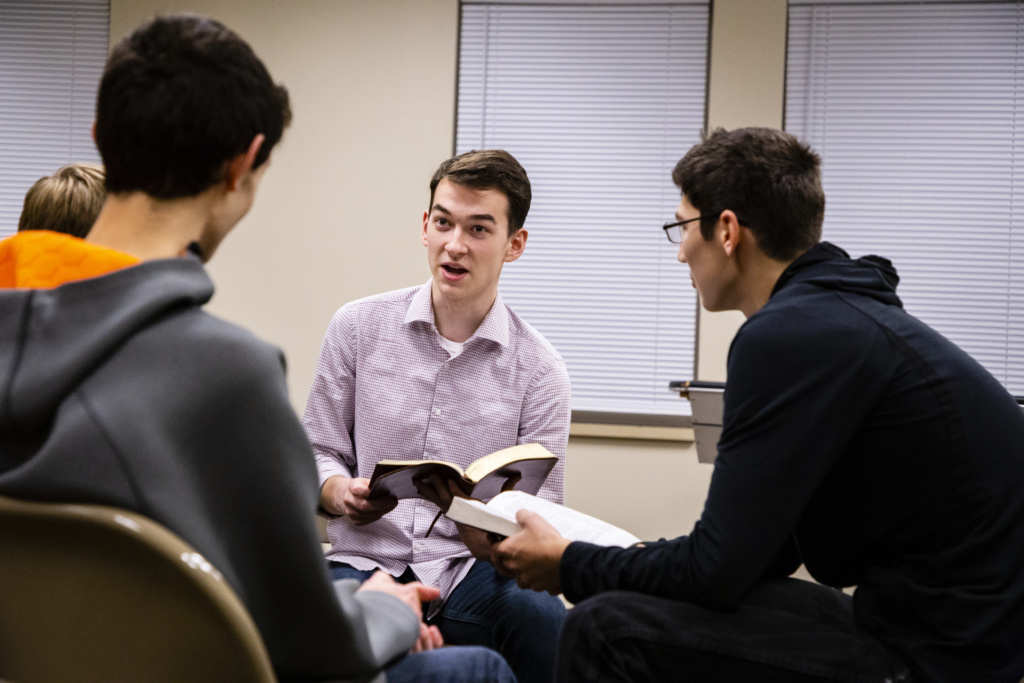Why Christian College?
For students in Christian environments planning to attend college, choosing a Christian university often seems the given – and even required – option. Many high school graduates enroll in a Christian university simply out of duty, without giving secular universities a second thought. However, these same students often don’t know why they chose a Christian college over a secular school. If that’s you, wondering why you should choose a Christian college instead of the secular institutions you constantly hear praised, keep reading. I don’t aim to devalue the education that many secular universities provide, but there are reasons why Christian colleges are a more fitting option for believers. Simply put, the Christian college provides opportunities that ultimately foster Christian growth.
A Different Perspective
Christian universities not only provide a solid academic education, but one with a Biblical worldview. During their average of four years on campus, students at any college learn and train to pursue a specific career. At secular universities, this training is mostly academic and social. At Christian colleges, however, a Biblical perspective of life, education, the workplace, and more accompany the learning. Especially at accredited universities like MBU, courses not only meet academic standards, but they also allow students to address specific topics with Scriptural support. Faith-based courses and smaller class sizes give opportunities for professors to invest personally in their students through many avenues. These opportunities allow more expression of opinion, discussion, and personal mentorship from a Biblical perspective. However, a Christian-influenced education doesn’t stop there. It pushes students to constantly improve, serve, and grow.
A Place to Serve
Furthermore, Christian colleges set themselves apart from non-faith-based colleges in several other ways. They provide a multitude of ministry  opportunities in the church, the community, and on campus. Although secular university students have these same opportunities, students at faith-based institutions are far less limited in the opportunities and experiences they can serve in. Maranatha, for example, with its church attendance requirements, strongly pushes its students to get involved in their local church. From teaching in Sunday school or nursery to serving in music, students learn to sacrificially give of themselves for the benefit of others.
opportunities in the church, the community, and on campus. Although secular university students have these same opportunities, students at faith-based institutions are far less limited in the opportunities and experiences they can serve in. Maranatha, for example, with its church attendance requirements, strongly pushes its students to get involved in their local church. From teaching in Sunday school or nursery to serving in music, students learn to sacrificially give of themselves for the benefit of others.
However, the ministries that Christian students can take part in are not limited to the church. At MBU, I’ve been involved in ministry in the church, ministry in the community, and ministry on campus. And, this is not uncommon for Maranatha or other Christian universities. Many may not consider opportunities for community ministry, but at schools like MBU, they abound through society involvement, part-time jobs, and relationship building in these venues. Likewise, campus ministry abounds for student employees, athletes, actors, musicians, and leaders. Christian universities offer unique opportunities for such ministry that secular colleges cannot and do not provide. As a general rule, students who attend a Christian university receive far more opportunities that will challenge them to learn and serve in a Biblical context.
A Chance to Grow
 Along with a Biblical worldview education and many ministry opportunities, believers who attend a Christian university are in an environment designed for spiritual maturity and growth. I wouldn’t change my Christian education for the world. I greatly value that I’m learning to address my future as a teacher with a professional yet Biblical perspective. Guided by godly faculty and staff, I am learning to adjust and fine-tune my worldview to fit my personal beliefs and goals. I am constantly pushed to sacrifice in ministry, and through it all, I am growing, learning, and maturing.
Along with a Biblical worldview education and many ministry opportunities, believers who attend a Christian university are in an environment designed for spiritual maturity and growth. I wouldn’t change my Christian education for the world. I greatly value that I’m learning to address my future as a teacher with a professional yet Biblical perspective. Guided by godly faculty and staff, I am learning to adjust and fine-tune my worldview to fit my personal beliefs and goals. I am constantly pushed to sacrifice in ministry, and through it all, I am growing, learning, and maturing.
My advice to Christian students teetering between a Christian school and a secular one is this: visit both. Compare the opportunities. Watch the students, and see how they grow. Visit classes and listen to the worldviews faculty present. Ask yourself: Do you want to attend a university where you’ll blend into the masses with little opportunity for Christian growth or ministry? Or would you like to be built into a leader and make an impact in ministry to the local church and the world, to the praise of His glory?


